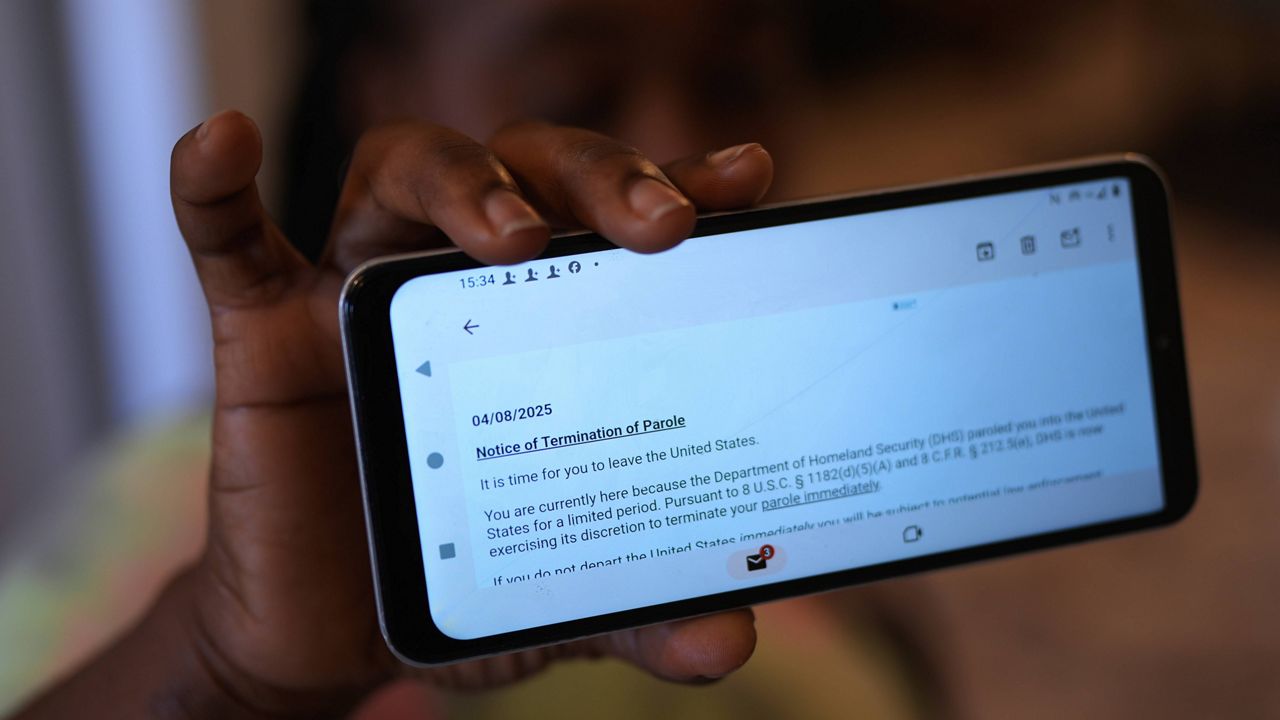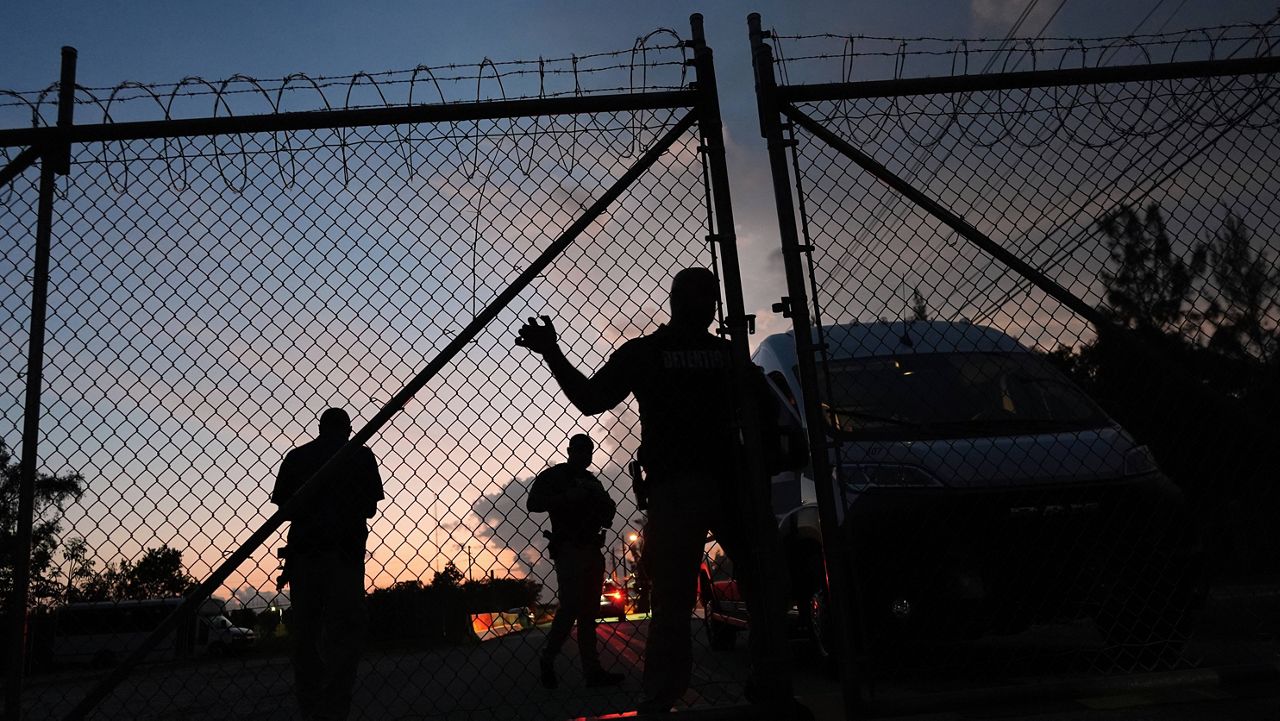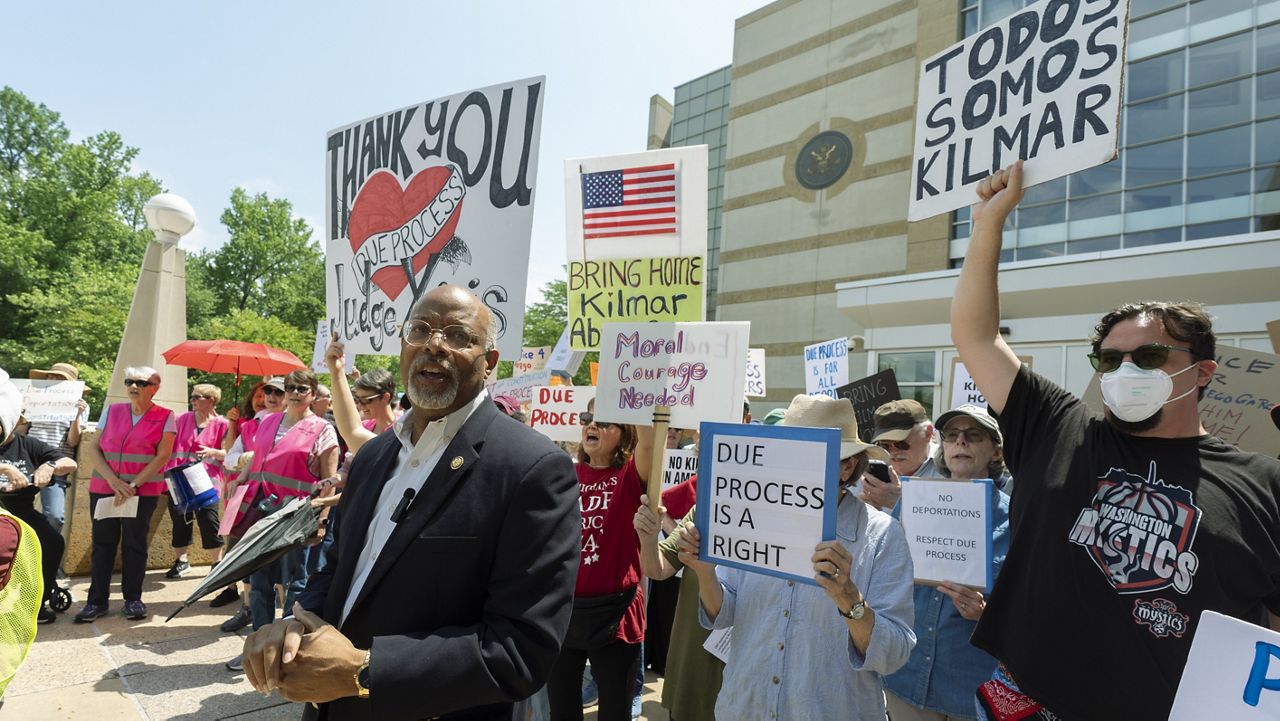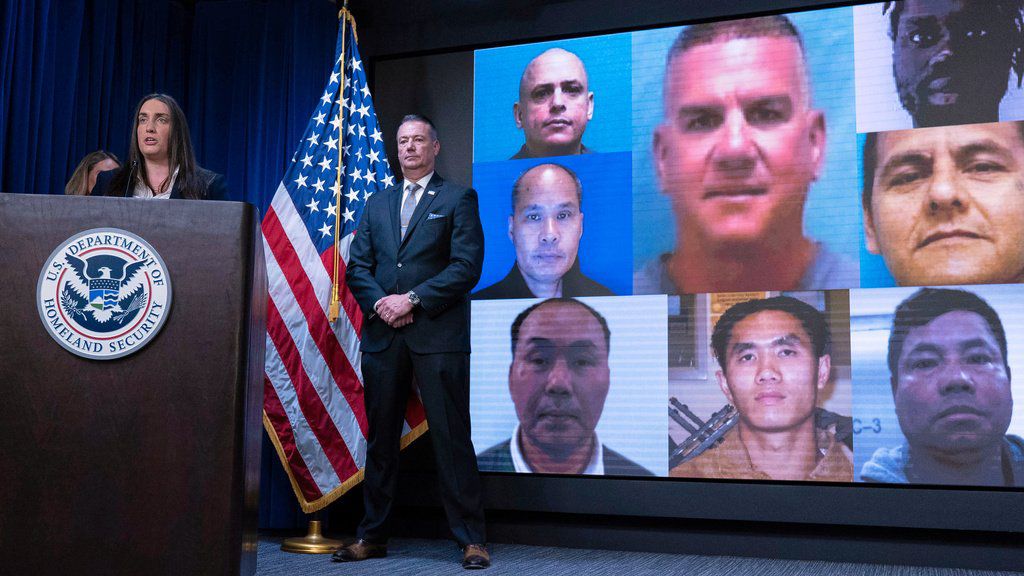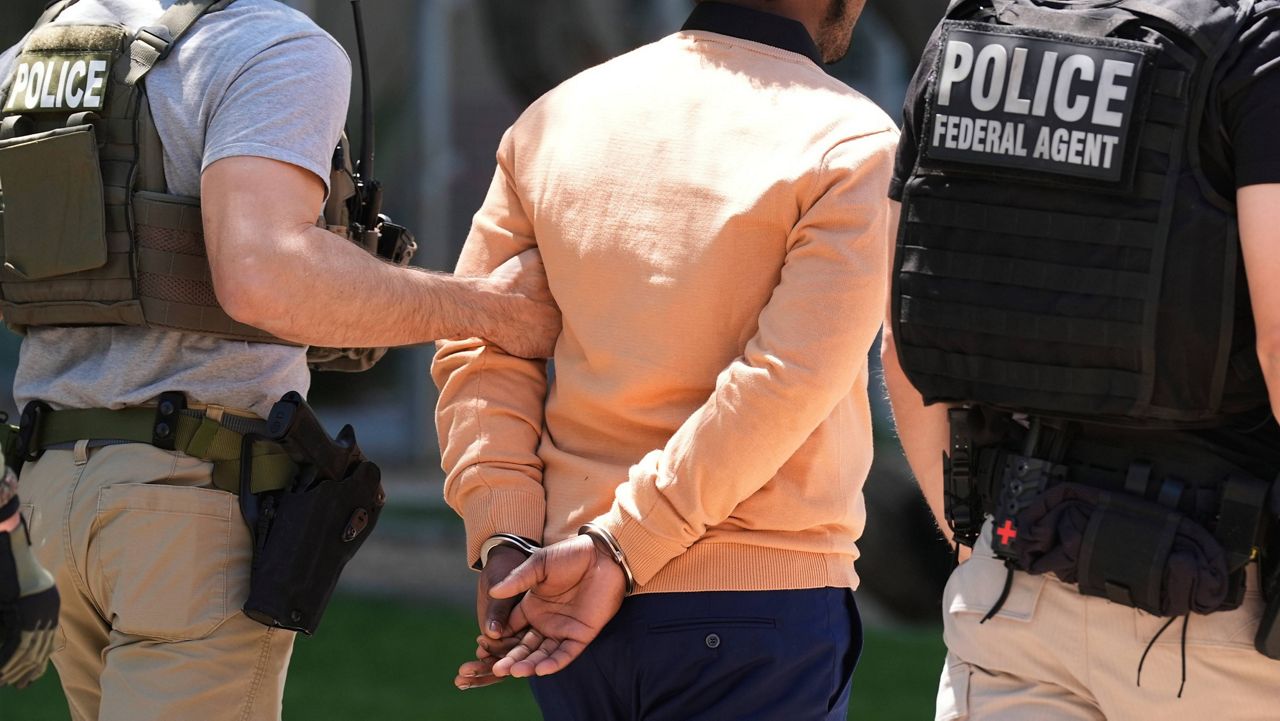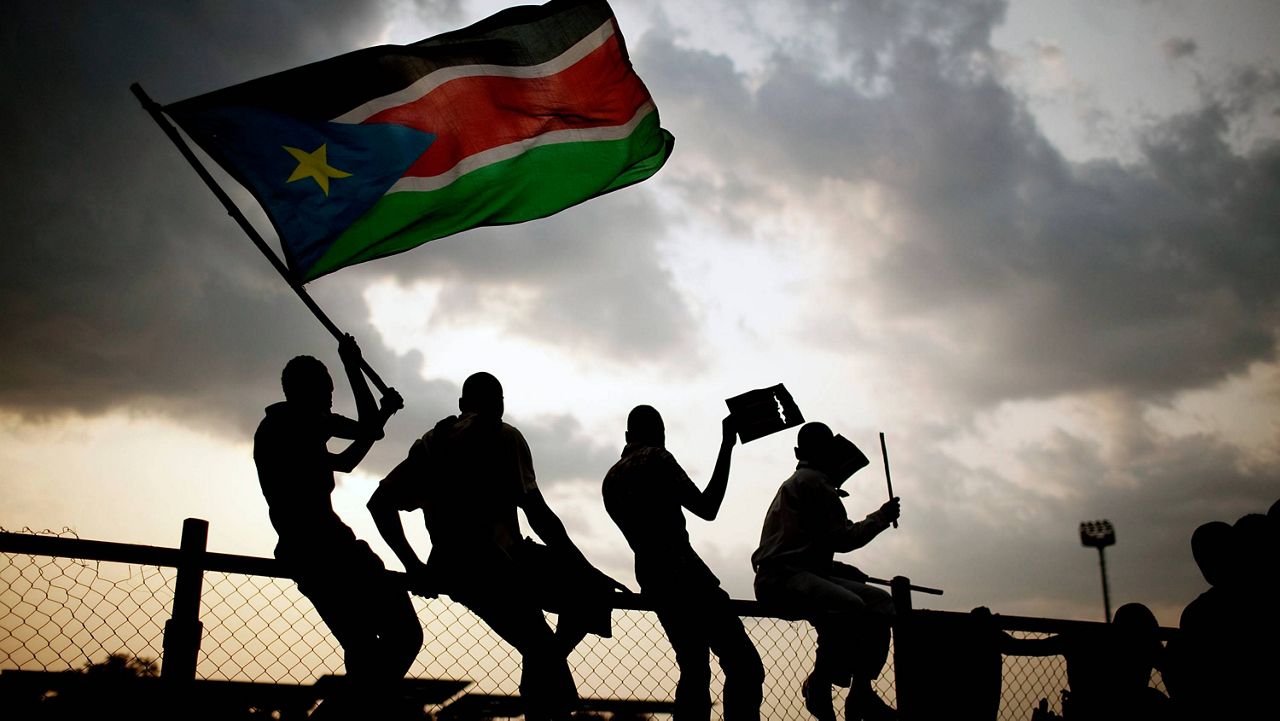WASHINGTON — President Donald Trump said in an ABC News interview Tuesday that he “could” secure the return of Kilmar Abrego Garcia, a Maryland man whom the Justice Department admitted was wrongfully deported to El Salvador, but won’t on the basis of unproven allegations about gang ties and a photoshopped image of apparent gang tattoos.
“I could,” Trump said in the interview when pressed by journalist Terry Moran on whether the president could pick up the phone and insist El Salvador’s government release the Salvadoran man in compliance with a Supreme Court ruling that the administration “facilitate” his return.
Both Trump and Salvadoran President Nayyib Bukele have insisted they won’t do that, including in an Oval Office meeting earlier this month.
“If he were the gentleman that you say he is, I would do that,” Trump said on Tuesday. “ But he's not.”
Abrego Garcia lived in the U.S. since 2012, according to Justice Department records, and a judge ordered him to be protected from deportation in 2019. He was arrested on March 12 and flown to El Salvador on March 15.
Trump went on to blame government “lawyers that don’t want to do this” and claimed, “I’m not the one making this decision.” In a CBS News interview that aired Wednesday morning, Homeland Security Secretary Kristi Noem said “this is the president's decision and the White House's decision, so we follow his direction and his legal scholars and attorneys.
“He is not under our control," Noem said of Abrego Garcia. "He is an El Salvador citizen. He is home there in his country. If he were to be brought back to the United States of America, we would immediately deport him again."
When pressed on whether Bukele would return Abrego Garcia if he asked, Trump said during a Cabinet meeting Wednesday that “I really don't know.”
“I know that he's been a great friend of our country," Trump said of the Salvadoran leader. "He's gotten a lot less money than this would take from us if we were going to build these jails and do what he's doing. And they run a very professional operation.
"I don't know. I haven't spoken to him. I really leave that to the lawyers, and I take my advice from [Attorney General] Pam Bondi and everybody that is very much involved. They know the laws, and we follow the laws exactly.”
In his Tuesday interview, Trump also blamed the situation on President Joe Biden’s immigration policies and falsely claimed Abrego Garcia has “MS-13” — referring to the gang by that name — tattooed “on his knuckles,” saying the tattoos are “as clear as you can be.”
Abrego Garcia does not have “MS-13” tattooed on his knuckles and has no criminal record in the U.S. His family has denied any gang ties. Last week, Trump posted a photo on social media of tattoos on Abrego Garcia’s knuckles with what appears to be a marijuana leaf, a smiley face, a cross and a skull across four fingers on his left hand. The letters and numbers “MS-13” were superimposed on the photo, with the administration appearing to argue each tattoo symbolized part of the gang name, but the name of the gang “MS-13" was never actually tattooed on Abrego Garcia’s hand.
Experts on MS-13 and gang culture have expressed skepticism that the tattoos represent what the administration claims they do. In October 2019, an immigration judge ruled Abrego Garcia should not be deported back to El Salvador in part because he feared gang violence could target him there.
As Trump officials have argued there is evidence Abrego Garcia is a gang member, federal judges have expressed skepticism of their own.
“The ‘evidence’ against Abrego Garcia consisted of nothing more than his Chicago Bulls hat and hoodie, and a vague, uncorroborated allegation from a confidential informant claiming he belonged to MS-13’s ‘Western’ clique in New York—a place he has never lived,” Judge Paula Xinis wrote in an April 6 court order.
On Wednesday, Xinis rejected the Justice Department’s request for an additional delay to comply with her order that they provide Abrego Garcia’s lawyers with information by Monday on how he was detained, deported and what steps the administration is taking to get him back.
She also ordered four Trump administration officials to give depositions by May 9: Immigration and Customs Enforcement officials Robert Cerna and Evan Katz, longtime State Department veteran Michael Kozak and Department of Homeland Security general counsel Joseph Mazzara.
Still Trump, his aides and his Cabinet members insist they will not bring Abrego Garcia back.
At Wednesday's Cabinet meeting, Secretary of State Marco Rubio said he “would never tell” if he had discussions with El Salvador’s government about facilitating Abrego Garcia’s return. The New York Times reported before the meeting that the Trump administration sent a diplomatic message to El Salvador inquiring about Abrego’s release and that Bukele’s government did not cooperate.
But Rubio declined to address the reporting, and it was unclear how serious the effort to comply with the Supreme Court ruling was.
“And you know who else? I'll never tell a judge, because the conduct of our foreign policy belongs to the president of the United States and the executive branch, not some judge,” Rubio said. “So we will conduct foreign policy appropriately if we need to, but I'll never discuss it, and no one will ever make us discuss it, because that's how foreign policy works.”
The White House declined to answer questions from Spectrum News on whether the president was aware of the diplomatic communications reported by The Times, whether the attempt was a legitimate effort or a legal tactic, and whether the president was concerned his public comments and inability to secure Abrego Garcia’s release would trigger repercussions from the Supreme Court and the federal judiciary.
An unsigned email referred questions to “Rubio’s remarks during the Cabinet meeting,” which came one day after Trump railed against judicial oversight of his administration in a major speech in Michigan.
Spectrum News’ Christina Santucci contributed to this report.





